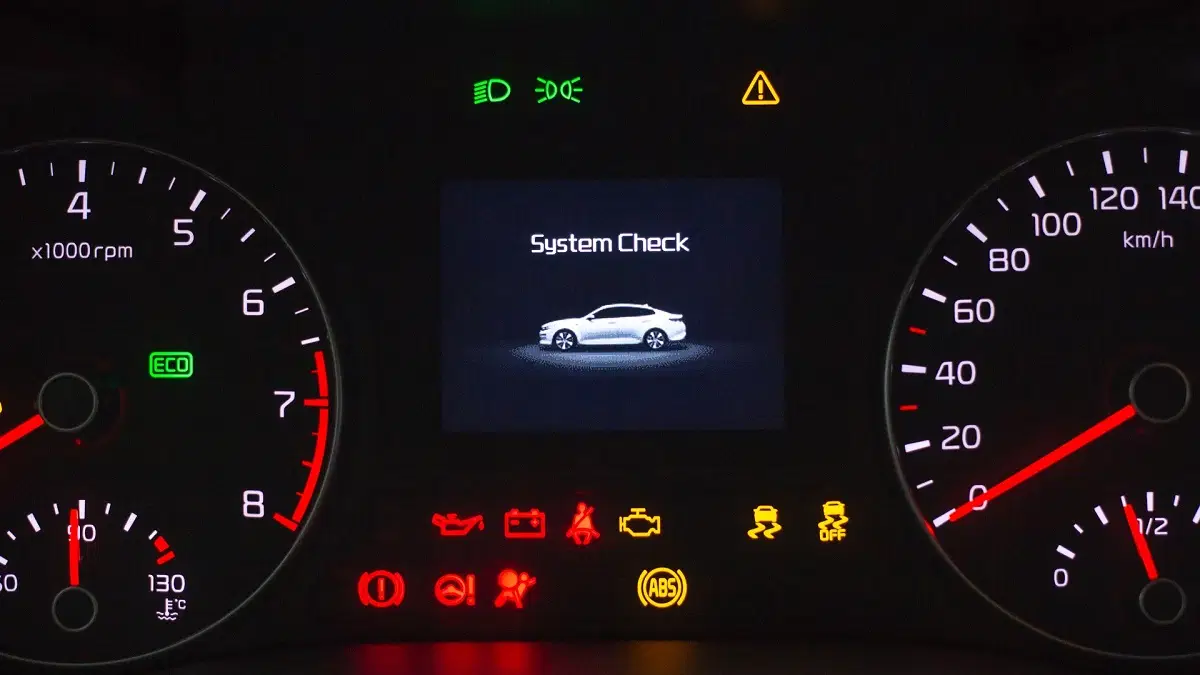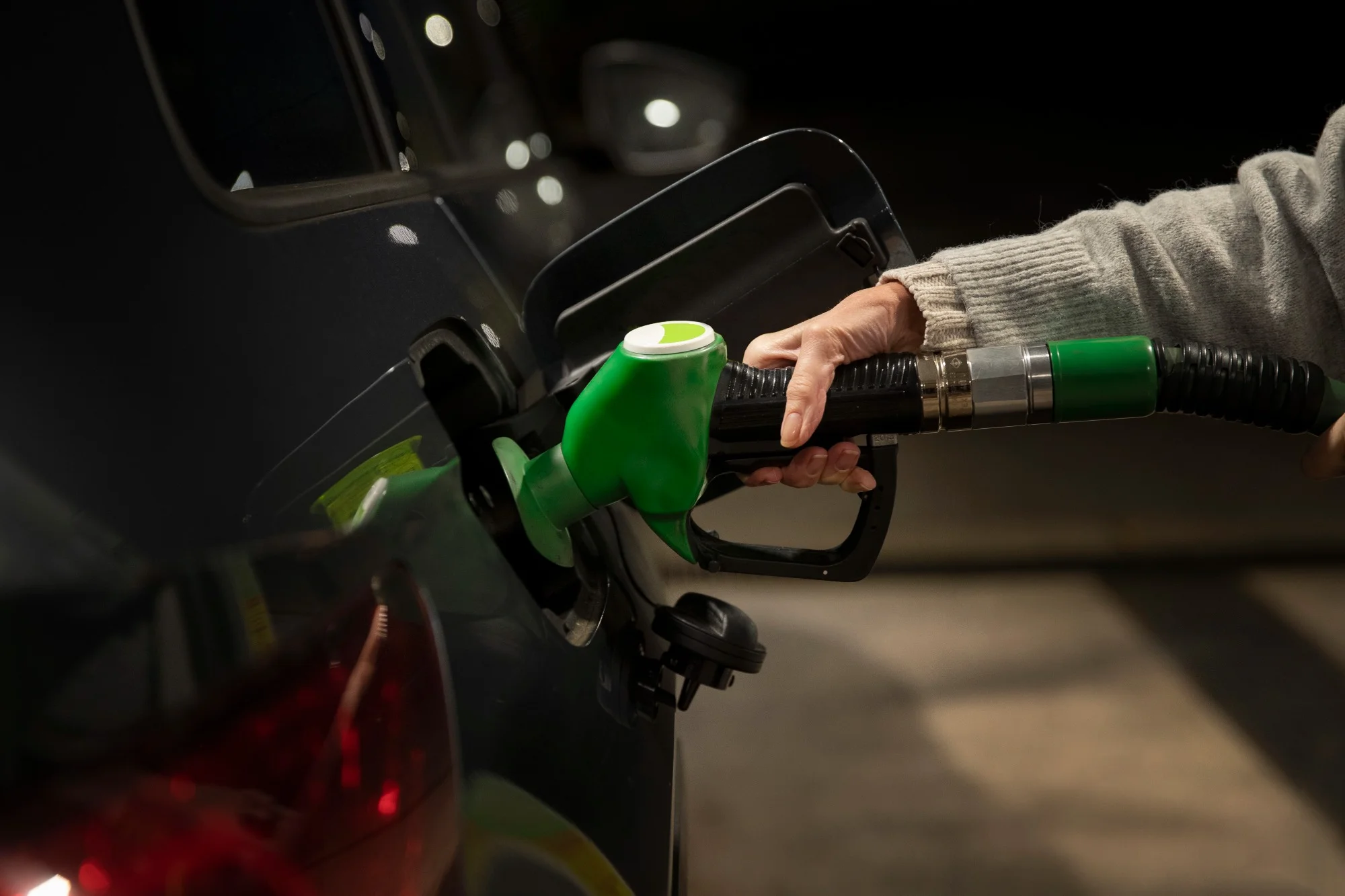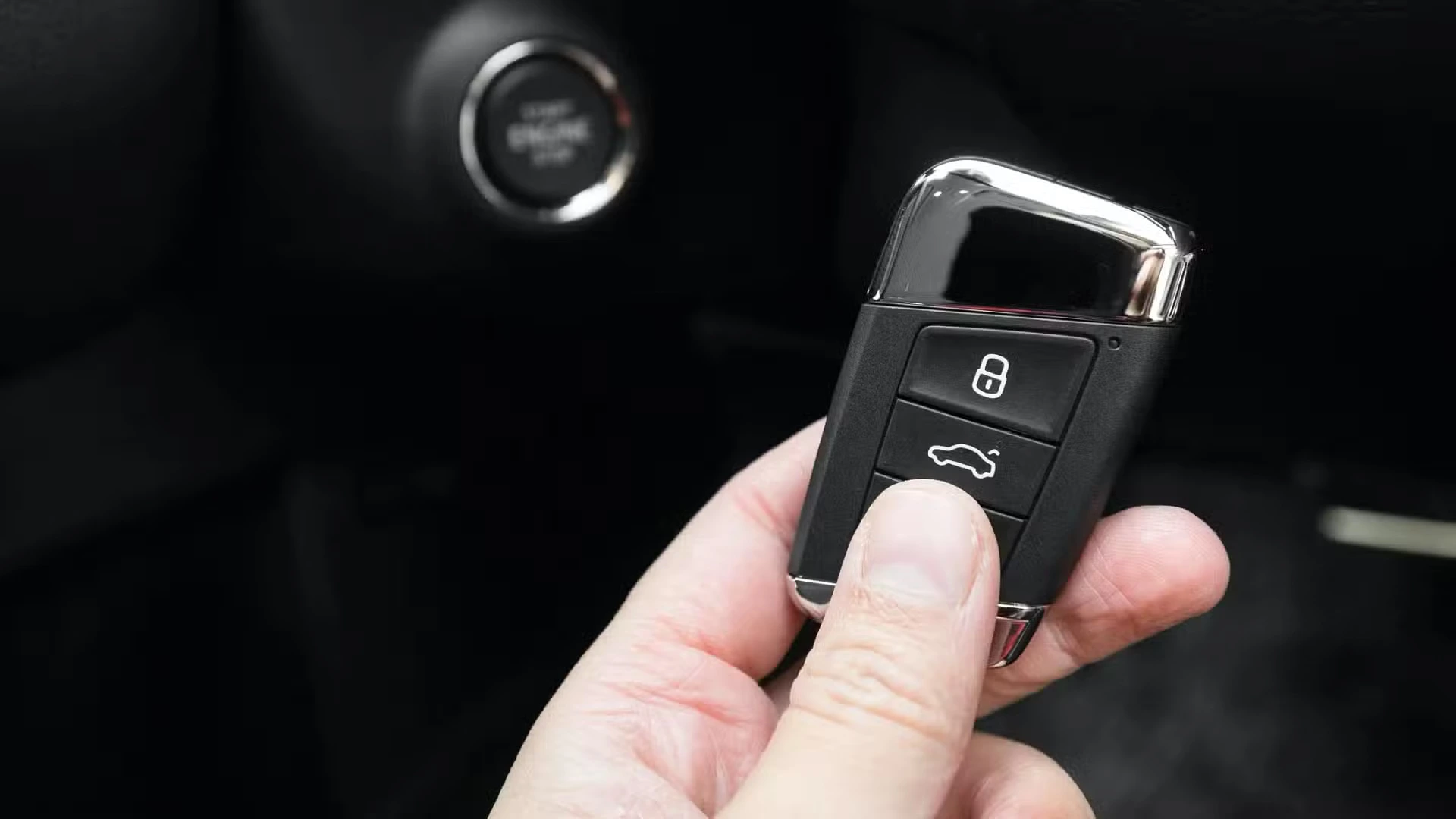
Table of Content
▼- What Is a Car Key Fob?
- Why Do Car Key Batteries Drain?
- Signs Your Car Key Battery Is Dying
- Different Types of Car Key Fobs
- DIY Car Key Battery Replacement A Step-by-Step Guide
- Save Money Replacing Your Car Key Battery at Home
- Troubleshooting Car Key Problems
- Battery-Related Issues:
- Non-Battery Issues:
- Types, Costs, and Replacement
- Car Key Battery Dead? Quick Fixes and Long-Term Solutions
- How to Test Your Car Key Fob After Replacement
- Conclusion
Modern cars rely heavily on keyless technology, remote locking, unlocking, boot access, panic alarms, and push-start features. But when the key fob starts lagging or becomes unresponsive, the most common culprit is a drained battery. Knowing how to replace a car key battery not only saves time but also eliminates unnecessary service-center costs.
Despite how modern key fobs look from the outside, replacing their internal battery is a simple DIY task. It requires no technical skill, no special tools beyond a small screwdriver or pry tool, and costs only a fraction of what dealerships or locksmiths charge. This comprehensive 1200-word guide explains the complete process, symptoms, battery types, troubleshooting, maintenance tips, and testing methods, giving you everything you need to handle car key battery replacement confidently and professionally.
What Is a Car Key Fob?
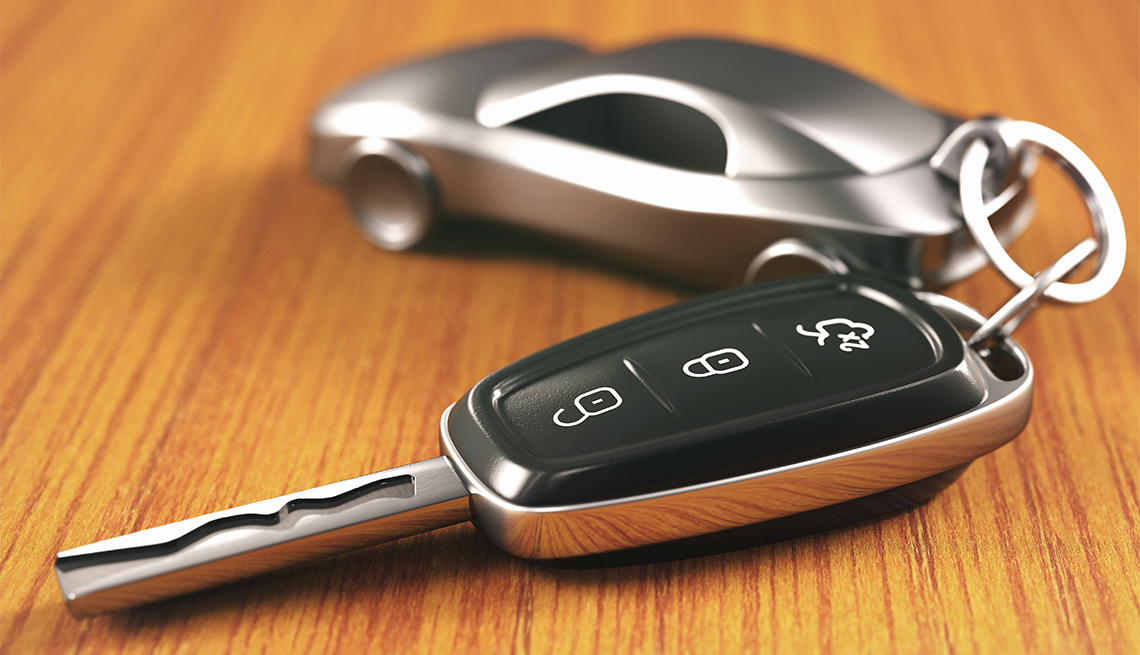
A car key fob is a compact wireless device designed to communicate with your vehicle through encrypted radio frequency signals. Depending on your car model, the fob can offer features such as:
- Remote locking and unlocking
- Panic alarm
- Boot release
- Keyless entry
- Push-button start
- Proximity detection
The fob contains a small circuit board, transmitters, and a coin-cell battery, usually a CR2032 battery, CR2025, CR2450, or CR1632. When the remote key battery drains, the entire system becomes unresponsive. This impacts convenience, but more importantly, compromises your ability to access or start the vehicle. Understanding how to replace a Car Key Battery ensures that you never face such interruptions.
Why Do Car Key Batteries Drain?
Car key fob batteries drain due to a combination of usage patterns, environment, and natural battery aging. Each press of a button sends a wireless command. Keyless systems continually search for the fob, which consumes additional power. Heat, humidity, and frequent handling accelerate battery depletion.
You may need to change the car key battery sooner if:
- You use lock/unlock functions multiple times daily
- The car is parked in direct heat
- The fob is exposed to moisture or dust
- The fob’s internal contacts weaken
Recognizing the earliest signs ensures timely intervention.
Signs Your Car Key Battery Is Dying
Weak key fob batteries rarely fail without warning. They usually show clear symptoms:

- Reduced Range: You have to stand very close to the vehicle for the key fob to respond.
- Delayed or Unresponsive Buttons: Multiple presses may be needed to lock or unlock the car.
- Intermittent Functioning: The key fob works sometimes, then suddenly stops responding.
- Push-Start Errors: Smart cars display “Key Not Detected” even when the fob is inside the vehicle.
- Dashboard Warning: Some vehicles show a low-battery notification specifically for the key fob.
When these issues show up, understanding how to replace a Car Key Battery becomes especially important.
Different Types of Car Key Fobs
1. Remote Fobs with Key
Basic remote controls with a separate physical key.
Examples: Maruti 800, older Santro.
2. Transponder / Smart Keys
Enable keyless entry and ignition through proximity.
Examples: Ferrari 488, Lamborghini Huracán.
3. Switchblade / Flip Keys
Fob and physical key integrated in one foldable design.
Examples: Hyundai Creta, Baleno, BMW 3 Series.
All types rely on coin batteries, but may differ in internal structure and opening method.
DIY Car Key Battery Replacement A Step-by-Step Guide
Knowing how to replace a Car Key Battery empowers you to handle the process quickly and without professional help. Follow this precise, professional workflow:
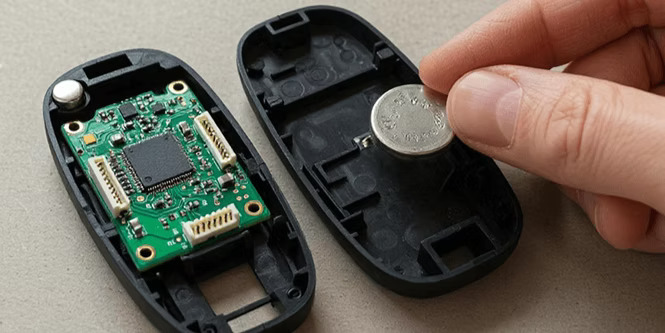
Step 1: Identify the Battery Type
Most fobs use CR2032 battery, CR2025, CR1632, or CR2450. Matching the correct size is critical for proper fit and voltage.
Step 2: Locate the Seam of the Fob
Look along the edges for:
- A visible seam
- A small notch
- A slot for a pry tool
This is where the casing opens.
Step 3: Gently Open the Fob
Use a flat screwdriver or pry tool. Twist gently until the two halves separate. Avoid applying excessive pressure to prevent damage to the internal board.
Step 4: Check Battery Orientation
Observe the positive (+) and negative (-) sides. Incorrect orientation prevents the fob from working.
Step 5: Replace the Battery
Remove the old key fob battery and insert the new one in the same orientation. Ensure it is securely seated.
Step 6: Reassemble and Test
Snap the case together and check all functions, lock, unlock, trunk release, and ignition detection.
This completes the core process of how to replace a Car Key Battery in under three minutes.
Save Money Replacing Your Car Key Battery at Home
Many car owners assume they need a dealership or locksmith to replace their fob battery. However, this is unnecessary in most cases.
Dealership Cost: ₹500–₹2,500
Locksmith Cost: ₹300–₹1,200
DIY Cost: ₹50–₹200
By learning how to replace a Car Key Battery, you avoid labour charges, waiting times, and the inconvenience of handing over your key. Furthermore, you control battery quality and prevent future performance issues.
Troubleshooting Car Key Problems
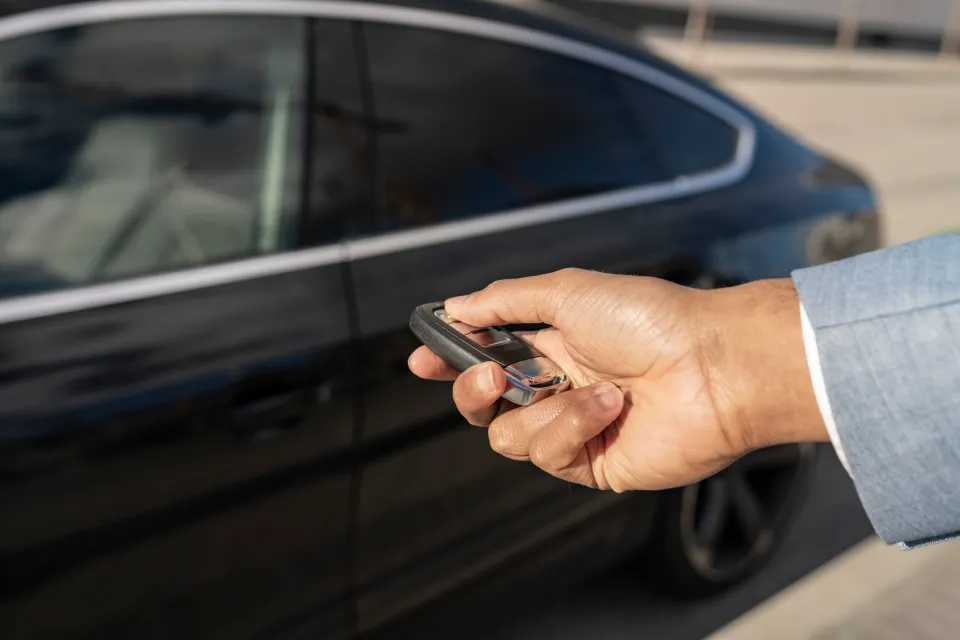
Not every fob issue is caused by the battery. Use this structured troubleshooting approach:
Battery-Related Issues:
- Weak signal range
- Button delay
- The LED indicator is not lighting up
- Occasional functioning
Non-Battery Issues:
- Damaged circuit board
- Worn buttons
- Internal corrosion
- Reprogramming required
If your fob still doesn’t work after following How to Replace a Car Key Battery, consult a dealership or certified locksmith.
Types, Costs, and Replacement
Common Battery Types:
- CR2032 battery – high-capacity, widely used
- CR2025 – thinner coin cell
- CR2450 – large, long-life model
- CR1632 – used in compact fobs
Replacement Cost Overview:
- Battery: ₹50–₹200
- Dealer replacement: ₹500–₹2,500
- Locksmith replacement: ₹300–₹1,200
Choosing a premium battery ensures long-term stability.
Car Key Battery Dead? Quick Fixes and Long-Term Solutions
If the battery dies unexpectedly, these temporary solutions may help:
Quick Fixes:
- Use the mechanical key
- Hold the fob near the start button
- Clean battery contacts
- Unlock manually
Long-Term Solutions:
- Replace batteries proactively
- Use protective covers
- Keep fobs away from moisture and heat
- Maintain a spare fob
These practices reduce failure and extend lifespan.
How to Test Your Car Key Fob After Replacement
Once you have completed how to replace a Car Key Battery, verify:
- Response time
- Signal range
- LED indicator activity
- Push-start recognition
- Boot release function
If performance remains inconsistent, the fob may need reprogramming
Conclusion
Mastering how to replace a Car Key Battery is a simple yet valuable skill that saves money, reduces downtime, and ensures reliable access to your vehicle. With the right battery type, careful handling, and proper testing, anyone can perform a safe, accurate car key battery replacement at home. For modern vehicles with keyless entry and ignition, this knowledge ensures uninterrupted convenience, smoother daily operation, and long-term reliability of your car’s access system.
Karan Bhatia
Karan Bhatia is an automobile expert and reviewer with 8+ years of experience test-driving cars, bikes, and EVs. He provides honest, detailed, and practical reviews that highlight performance, design, safety, and value for money. His expert insights help readers make confident choices when buying their next vehicle.

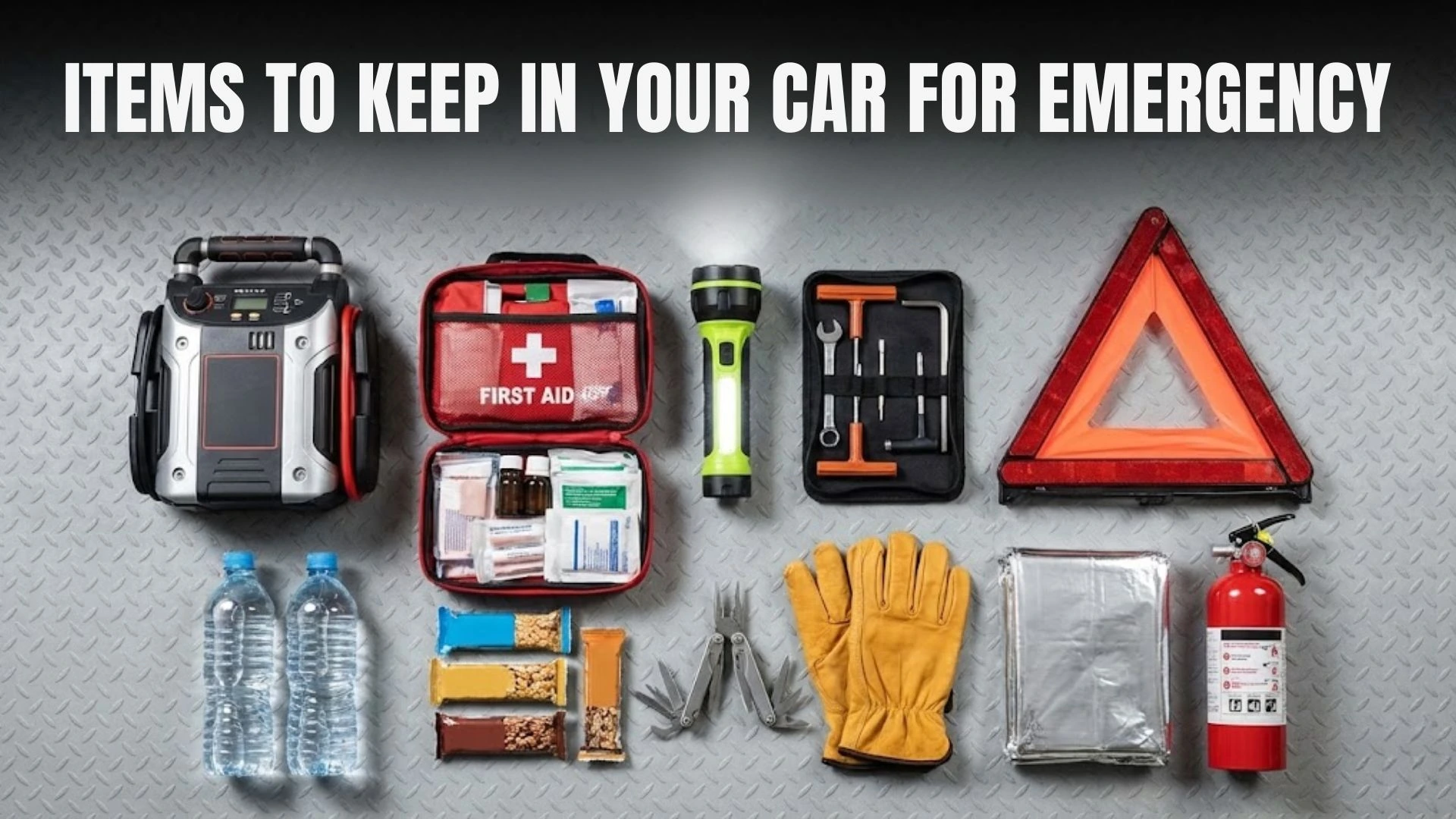
_1771411501.webp)
